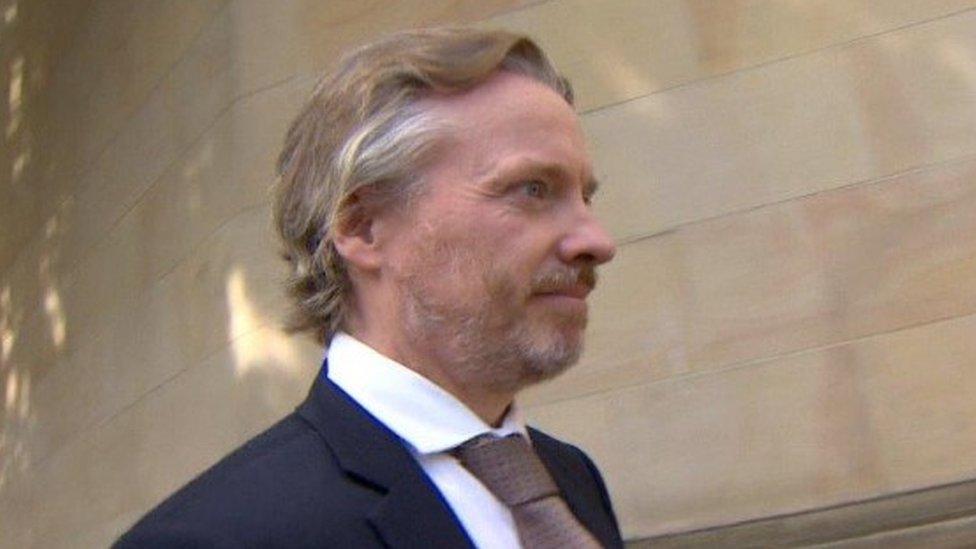Craig Whyte trial: Lawyer 'warned Whyte over Rangers deal'
- Published
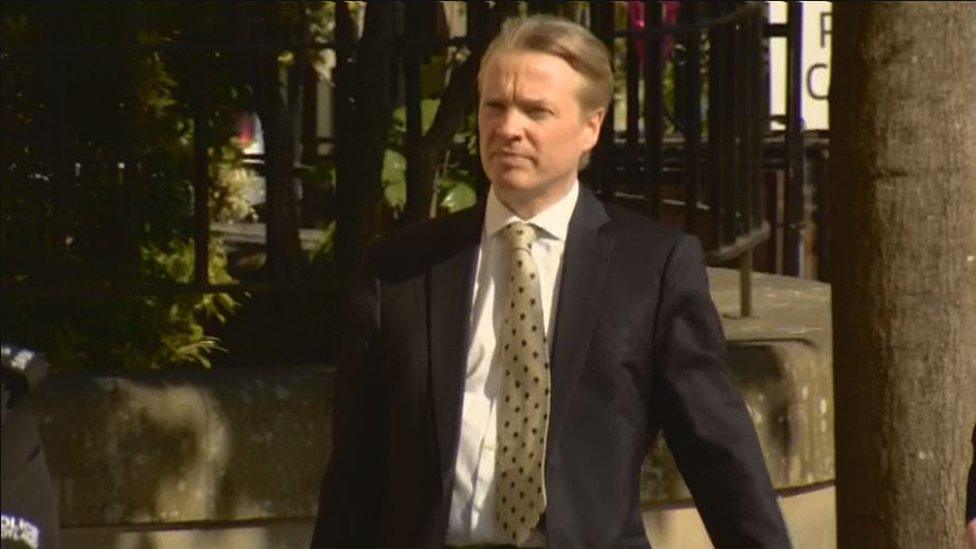
Craig Whyte denies fraudulently acquiring the Ibrox side
A lawyer who handled Craig Whyte's takeover of Rangers told him he would be "mad" to do the deal, a court has heard.
Gary Withey said he advised Mr Whyte to walk away after being "shocked" about how little financial information was given by the football club's sellers.
The 52-year-old was giving evidence at the trial of Craig Whyte, who is accused of acquiring the club by fraud.
Mr Whyte denies a charge of acquiring Rangers by fraud in May 2011.
He denies a second charge under the Companies Act.
At the time of the sale, Rangers was owned by majority shareholder Sir David Murray.
Gary Withey worked for the London-based tax specialist Collyer Bristow, which had been recruited by Mr Whyte to oversee the deal.
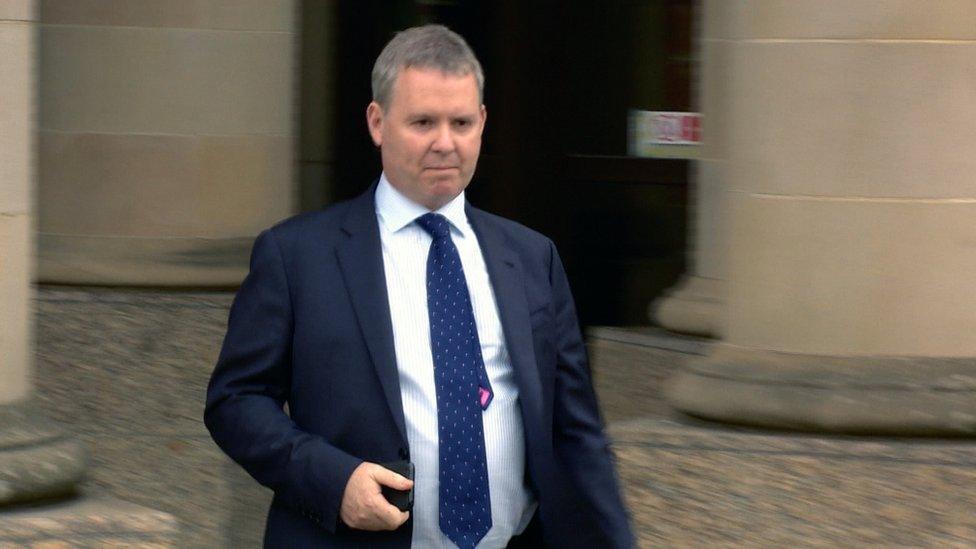
Legal advisor Gary Withey was giving evidence at the High Court in Glasgow
Mr Withey was asked by Donald Findlay QC, acting for Mr Whyte, about a so-called "data room" set up for any takeover.
The witness said: "I came into five A4 box files and I was told that was the data room. I was shocked."
Mr Findlay asked Mr Withey if he thought Sir David's team were being "open and candid".
He replied: "I knew that they were not."
Mr Findlay referred to two "liabilities" that had been facing Rangers - the so-called small tax case and the big tax case.
'Walk away'
He said: "In the early stages you had no indications that they existed?"
Mr Withey: "That is correct."
He added: "I told Mr Whyte that he would be mad to go ahead with the transaction and he should walk away.
"There were things that we had to discover and it made it uncomfortable having to discover things rather than being told up front."
Asked about the discovery of the big tax case, Mr Withey told the court: "I remember having a spreadsheet. I remember having two meetings with their (Murray team) QC.
"But, anything else was highly confidential."

Sir David Murray sold Rangers to Craig Whyte for £1
Mr Whyte later went on to strike a £1 deal to acquire Sir David's majority stake at Rangers.
Mr Findlay asked Mr Withey: "Did anyone ever bother to hand over a £1 coin even as a souvenir?"
The witness said he was not aware of that.
Mr Withey later said both tax cases "caused real difficulty".
Mr Findlay later asked him: "So, you are left with saying to your client 'here is the situation, I would walk away, but it is up to you'.
"That is what you did."
Mr Withey replied: "Probably on more occasions than I care to remember. I thought he was mad.
"I told him to walk away, but, by the time he is going to sign, it is too late ...he is going to sign."
The jury later heard about David Grier - another person said to have been involved in the takeover negotiations.
The QC asked Mr Withey what he believed Mr Grier's role to have been.
Mr Withey replied: "With the benefit of hindsight, to get RFC (Rangers) into administration and walk away with millions of pounds of fees."
Mr Grier was said to have been involved in talks with Lloyds Bank with regards the £18m loan that was owed by the club.
But, Mr Withey said he spoke to Mr Whyte about Mr Grier.
Mr Withey added: "I could not work out what he was doing there."
He also told the court Mr Grier got a £200,000 fee before he was part of a firm - Duff and Phelps - that was involved in the later administration of Rangers.
Mr Withey said: "It was a nice deal for them."
Season ticket sales
Prosecutors allege Mr Whyte pretended to Sir David Murray, and others, that funds were available to make all required payments to acquire a "controlling and majority stake" in the club.
The Crown alleges Mr Whyte had only £4m available from two sources at the time but took out a £24m loan from Ticketus against three years of future season ticket sales.
The court has heard the sale was eventually made to Mr Whyte for £1 but came with obligations to pay an £18m bank debt, a £2.8m "small tax case" bill, £1.7m for stadium repairs, £5m for players and £5m in working capital.
The second charge under the Companies Act centres on the £18m payment between Mr Whyte's Wavetower company and Rangers to clear a bank debt.
The trial before eight men and seven women continues.
- Published11 May 2017

- Published10 May 2017
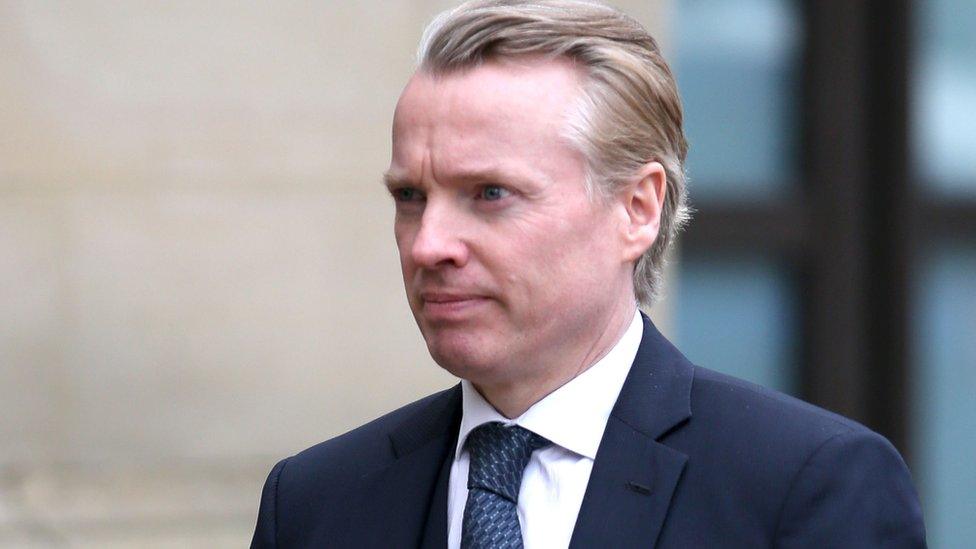
- Published9 May 2017
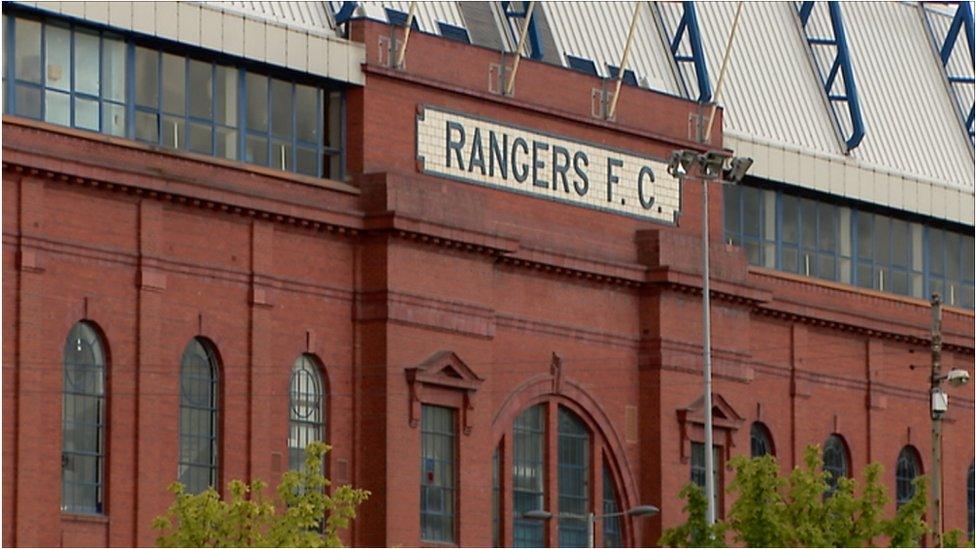
- Published3 May 2017

- Published25 April 2017
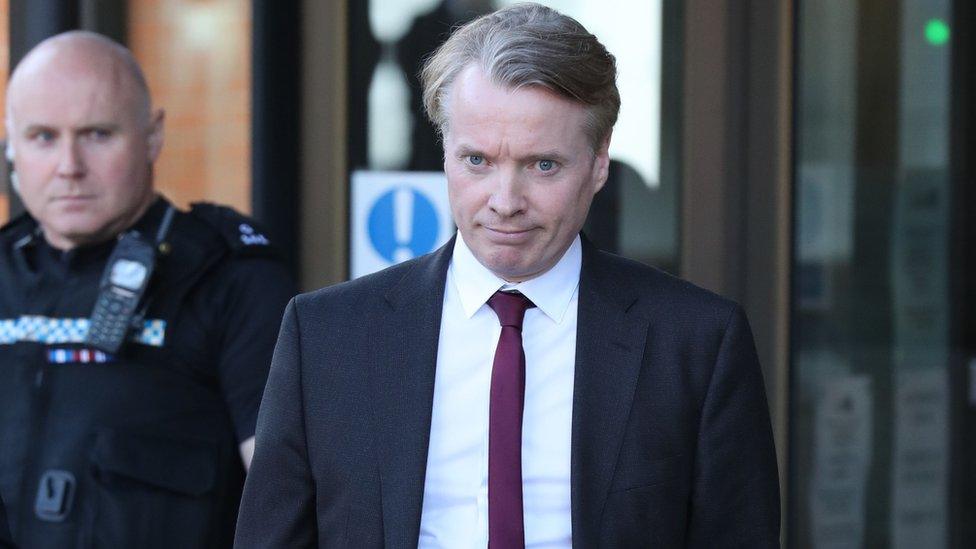
- Published24 April 2017

- Published21 April 2017

- Published20 April 2017
